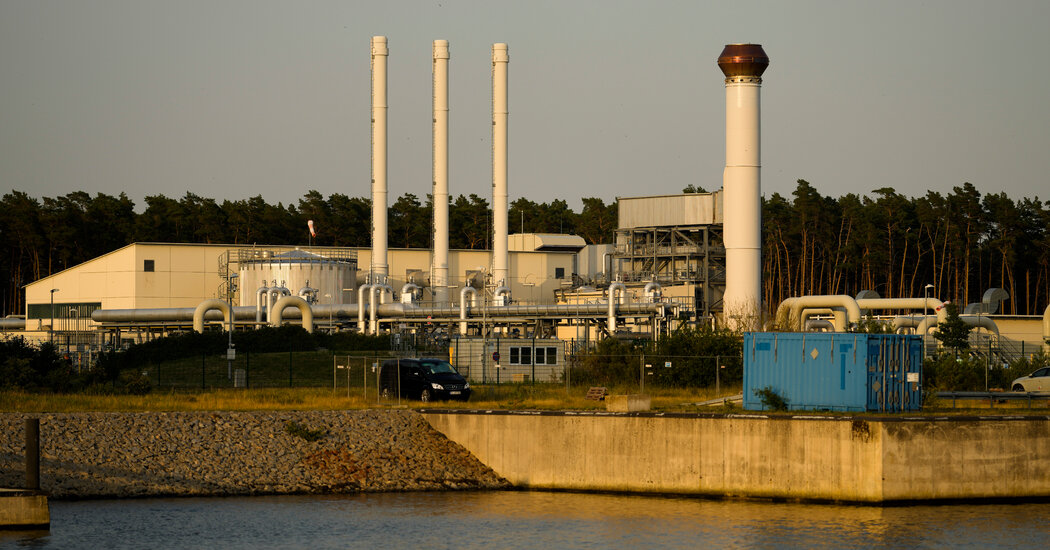BERLIN – Russia’s state gas monopoly, Gazprom, said Monday it would further reduce the amount of natural gas it sends to Germany via the Nord Stream 1 pipeline, less than a week after it resumed restricted flows after an annual maintenance shutdown.
The flows had already been reduced to 40 percent of capacity, but gazprom said: that it would shrink them to 20 percent from Wednesday, citing problems with one of the powerful turbines manufactured by the German company Siemens Energy. The turbines build pressure in the pipeline to transport the gas over long distances.
In mid-June, Russia began reducing the amount of gas carried through the 760-mile submarine pipeline, blamed on a missing turbine shipped to Canada for repair.
On Monday, Gazprom said on its social media accounts that it was shutting down “another gas turbine engine, produced by Siemens.”
Germany’s economy ministry has always rejected Gazprom’s argument that a damaged turbine was responsible for restricting gas flows, saying instead that the cuts were another way for Russia to punish Europe for resisting the war. in Ukraine.
The Berlin government opposed Gazprom’s latest planned austerity measures.
“Based on our information, there is no technical reason for a reduction in deliveries,” the German economy ministry said in a statement following Gazprom’s announcement.
Observers said the move smacked of President Vladimir V. Putin’s intention to use Russia’s energy exports as a cudgel to punish and divide European leaders by loosening or tightening the taps as it puts him and his war targets in Ukraine comes out.
“Gazprom’s announcement should come as no surprise,” said Simone Tagliapietra, senior fellow at Bruegel, a think tank in Brussels. “Russia is playing a strategic game here. Fluctuating already low flows is better than a full shutdown as it manipulates the market and optimizes geopolitical impact.”
European Union energy ministers will meet in Brussels on Tuesday to discuss a proposal to help citizens and businesses of the 27-member bloc save energy. But divisions have arisen as countries not heavily reliant on Russian gas, such as Greece and Spain, have been annoyed at the idea of cutting consumption to help Germany, their wealthy northern partner.
Before the Russian invasion of Ukraine, Germany relied on Russia to supply 55 percent of its total natural gas needs. It has cut that share to 30 percent in recent months, but is struggling to conserve enough fuel to ensure it has enough stores to make it through the winter.
Hours before Gazprom announced the new cuts, the head of Germany’s network regulator, Klaus Müller, said the country’s storage facilities had reached 65.9 percent capacity and were therefore “finally back on track”. The goal is for the storage space to be 75 percent full by early September.
Gazprom’s announcement should have made it clear to all members of the European Union how crucial it is for them to start saving gas quickly and decisively, said Mr Tagliapietra. “Action on this can no longer be delayed.”

